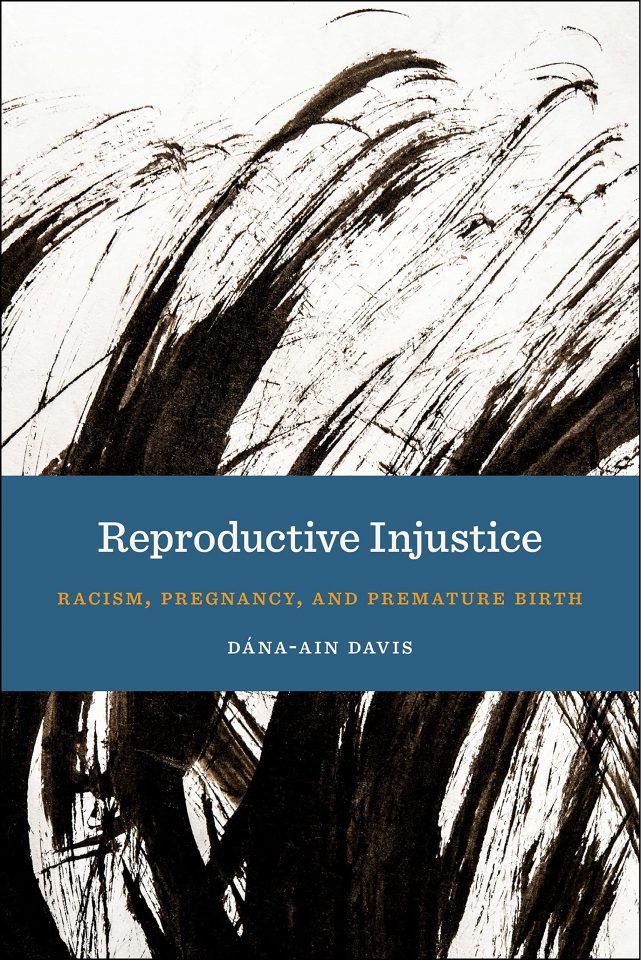This Black History Month, Woodward Library is celebrating Black excellence in STEM by honouring the amazing contributions of the Black scientists and medical practitioners who paved the way, acknowledging and lifting up the work being done by Black STEM practitioners today, and encouraging support and acknowledgement for the Black students who will be the practitioners of the future. To commemorate this month, we have created a list of resources for Black students and practitioners in the sciences looking to connect and form community, as well as a list of e-books and films by Black STEM practitioners and about Black contributions to STEM, all of which are free to access through the UBC Library website.
Black STEM Organizations for Students and Professionals
Are you a Black student or STEM practitioner wanting to connect with your peers? Here are a few excellent organizations that you can join. Non-Black peers, please consider donating or otherwise showing support for these groups.
Book and Film List
This month and every month, we encourage you to actively learn about, teach about, and uplift the work of Black scientists, medical professionals, engineers, researchers, professors, students, and everyone else working hard to advance our understandings and make the world a better place. Here are some e-books and streaming films that you can read and watch to start learning. Feel free to stop into Woodward Library to check out our print books too.
Black experiences in STEM

StarTalk: True Story of Hidden Figures (S.4, Ep.15)
Presented by Neil deGrasse Tyson
“Host Neil deGrasse Tyson features his interviews with the author of “Hidden Figures,” Margot Lee Shetterly, and Grammy-nominated singer Janelle Monáe. Tyson is joined in the Hall of the Universe by comedian co-host Sasheer Zamata and NASA historian Bill Barry to discuss NASA’s human computers and their space race legacy. To add to the conversation about modern space programs, NASA engineer Tracy Drain joins via video call.”
Carolyn Finney
“Why are African Americans so underrepresented when it comes to interest in nature, outdoor recreation, and environmentalism? In this thought-provoking study, Carolyn Finney looks beyond the discourse of the environmental justice movement to examine how the natural environment has been understood, commodified, and represented by both white and black Americans. Bridging the fields of environmental history, cultural studies, critical race studies, and geography, Finney argues that the legacies of slavery, Jim Crow, and racial violence have shaped cultural understandings of the “great outdoors” and determined who should and can have access to natural spaces.”
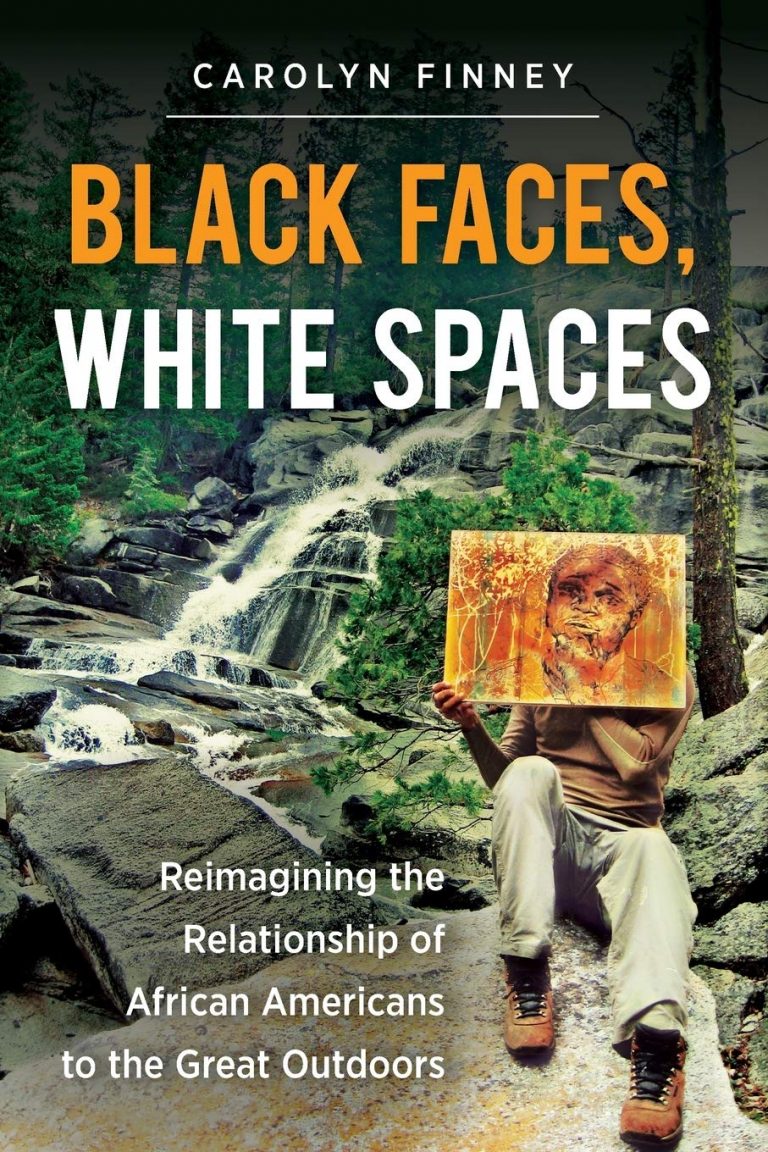
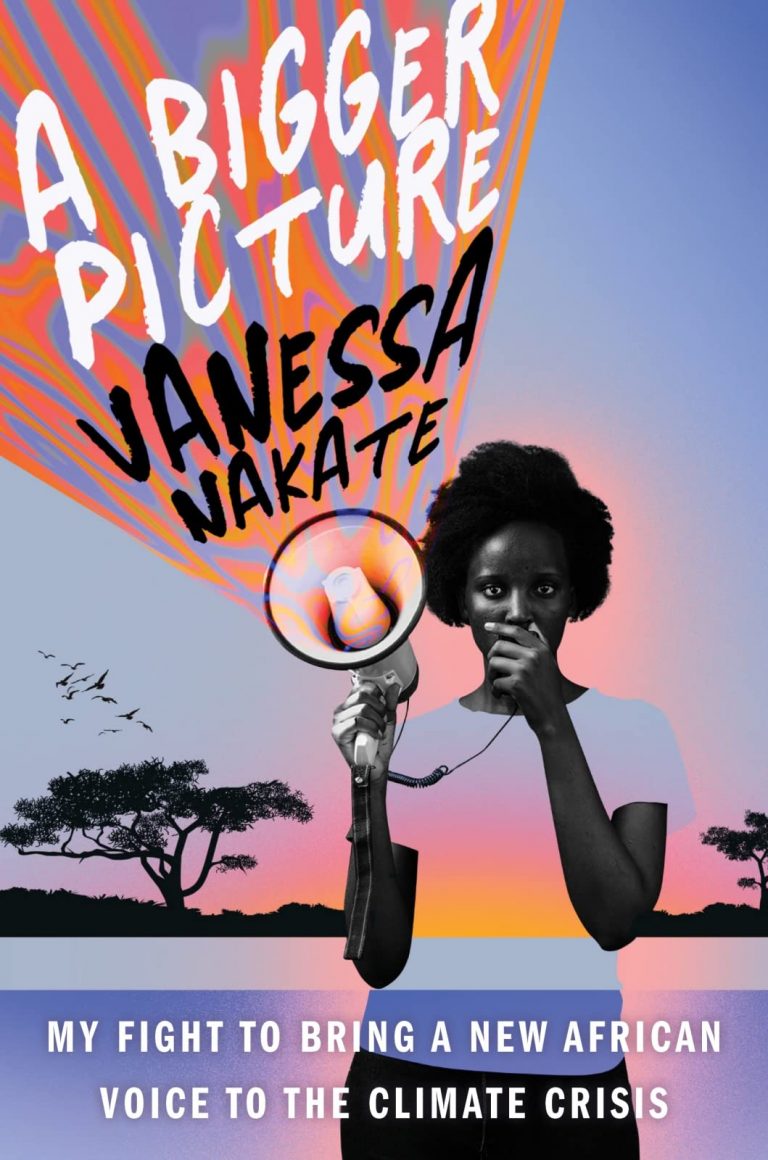
A Bigger Picture: My Fight to Bring a New African Voice to the Climate Crisis
Vanessa Nakate
“When it comes to speaking or writing about climate change, voices and stories of people of colour and from the Global South are often omitted, even though these communities often contribute the least to the problem and suffer its consequences the most. Vanessa Nakate shows that without addressing this important gap, without highlighting the real and immediate danger communities like hers and so many others face, we have no hope of making progress in the race to save our planet.”
Breaking Ground: My Life in Medicine
Dr. Louis Wade Sullivan
“In Breaking Ground, Sullivan recounts his extraordinary life beginning with his childhood in Jim Crow south Georgia and continuing through his trailblazing endeavors training to become a physician in an almost entirely white environment in the Northeast, founding and then leading the Morehouse School of Medicine in Atlanta, and serving as secretary of Health and Human Services in President George H. W. Bush’s administration. Throughout this extraordinary life Sullivan has passionately championed both improved health care and increased access to medical professions for the poor and people of color.”
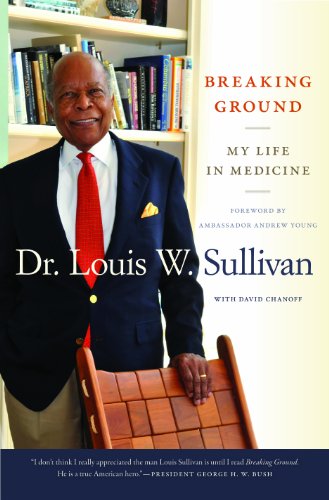
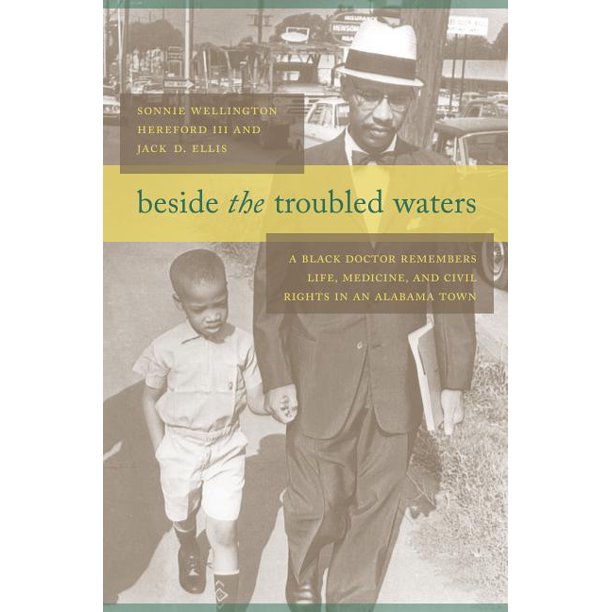
Sonnie W. Hereford and Jack D. Ellis
“Beside the Troubled Waters is a memoir by an African American physician in Alabama whose story in many ways typifies the lives and careers of Black doctors in the south during the segregationist era while also illustrating the diversity of the Black experience in the medical profession.”
Beyond Banneker: Black Mathematicians and the Paths to Excellence
Erica N. Walker
“Erica N. Walker presents a compelling story of Black mathematical excellence in the United States … Based on archival research and in-depth interviews with thirty mathematicians, this important and timely book vividly captures important narratives about mathematics teaching and learning in multiple contexts, as well as the unique historical and contemporary settings related to race, opportunity, and excellence that Black mathematicians experience. Walker draws upon these narratives to suggest ways to capitalize on the power and potential of underserved communities to respond to the national imperative for developing math success for new generations of young people.”
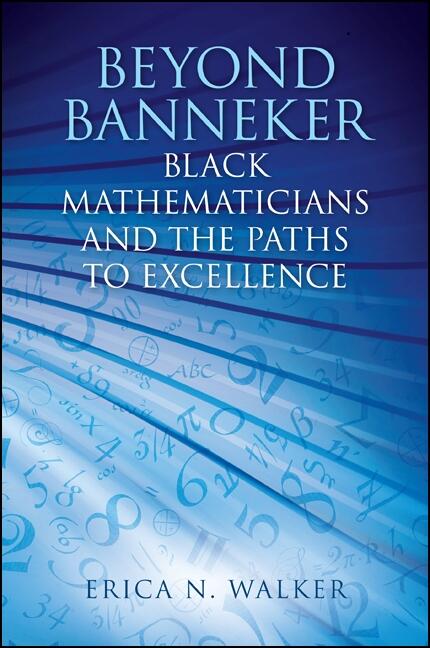
Innovative ideas by Black STEM practitioners
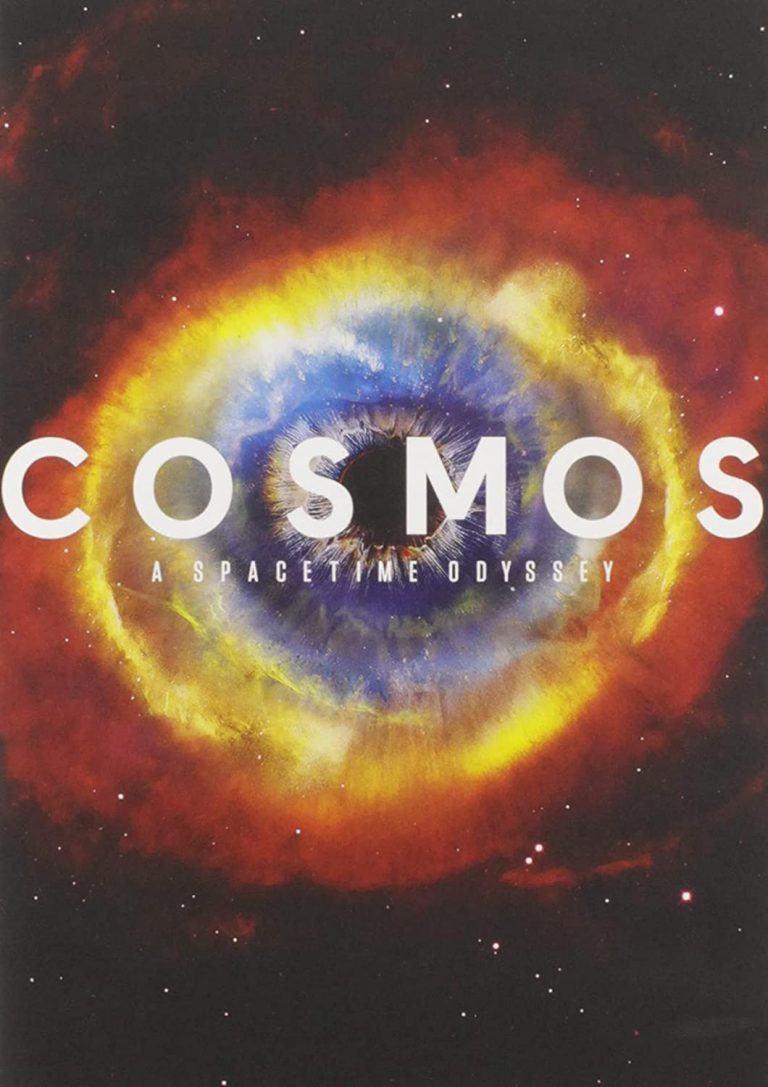
Cosmos: A Spacetime Odyssey: Standing Up in the Milky Way (Ep. 1)
Hosted by Neil deGrasse Tyson
“Host and astrophysicist Neil deGrasse Tyson sets off on the Ship of the Imagination to discover earth’s Cosmic Address and its coordinates in space and time. Viewers meet Renaissance Italy’s Giordano Bruno, who had a spiritual epiphany about the infinite expanse of the universe. Then Tyson walks across the Cosmic Calendar, on which all of time has been compressed into a year-at-a-glance calendar, from the Big Bang to the moment humans first make their appearance on the planet.”
One Strange Rock: Survival (Ep. 5)
Hosted by Mae C. Jemison
“Will we find life like ours on another planet? All life on Earth started as single-cell bacteria and stayed like that for 2 billion years. So how did that bacteria become the complex, colorful and diverse life that’s all around us? And could this happen anywhere else in the universe? Hosted by astronaut Dr. Mae Jemison.”
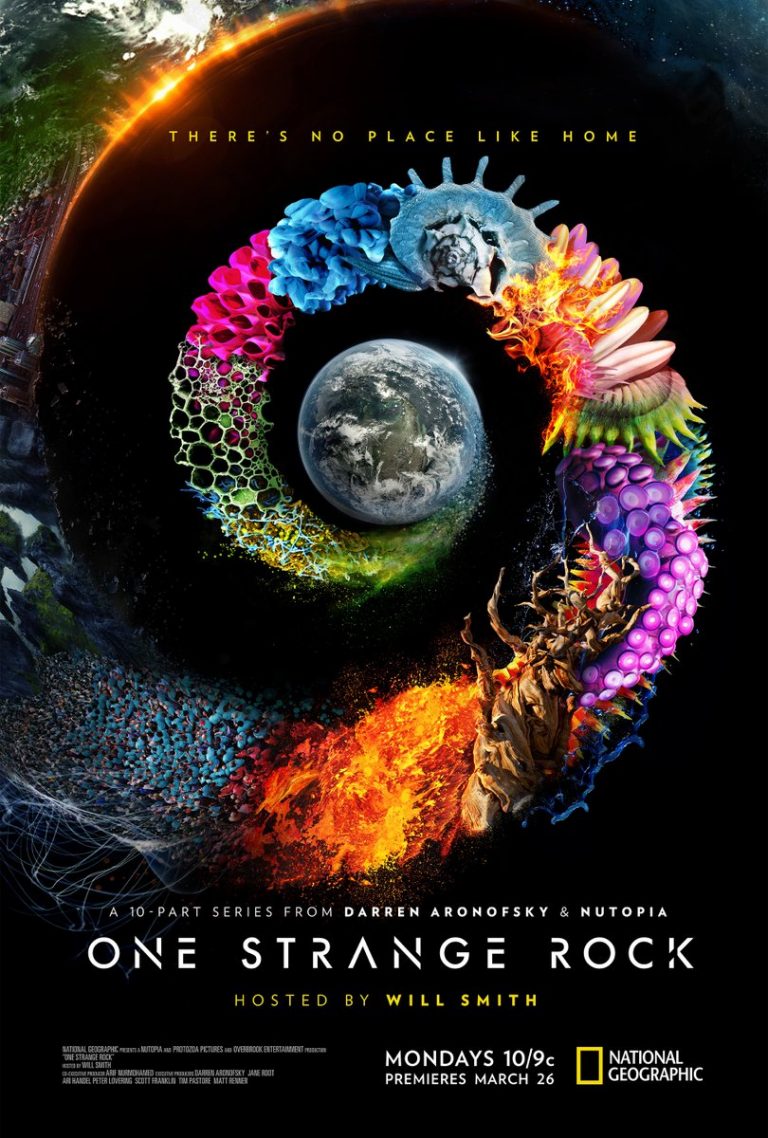
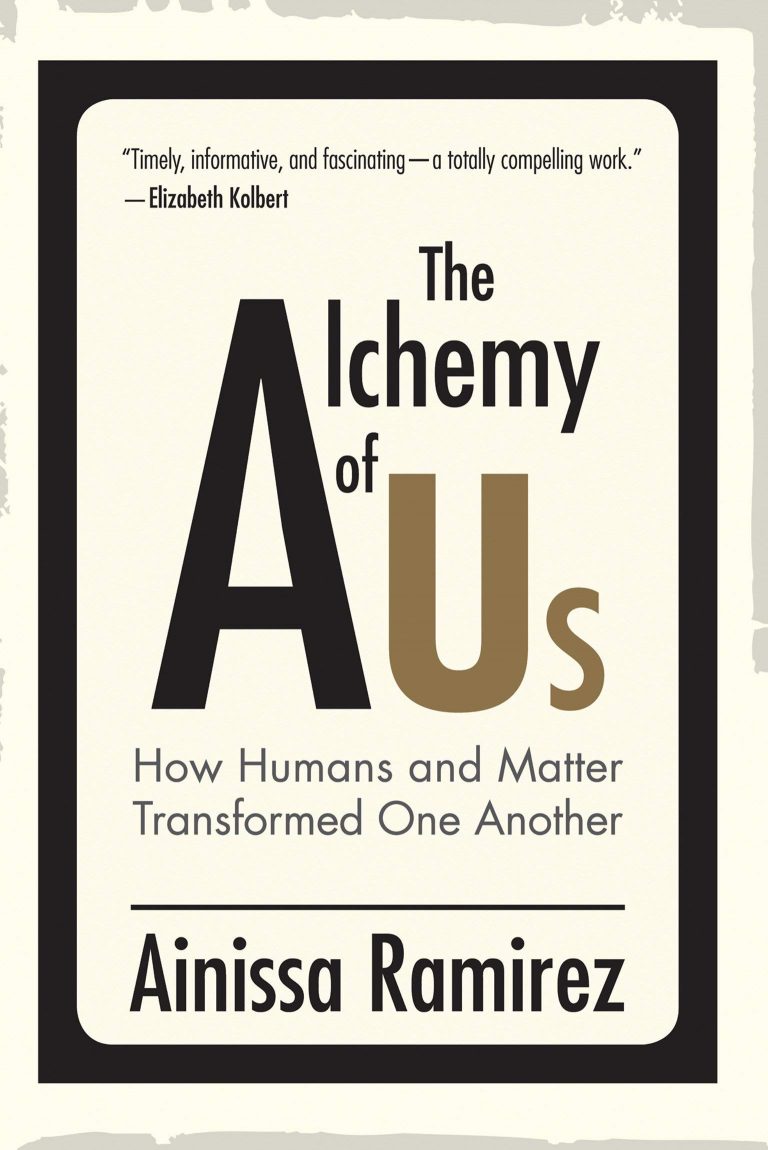
The Alchemy of Us: How Humans and Matter Transformed One Another
Ainissa Ramirez
“In The Alchemy of Us, scientist and science writer Ainissa Ramirez examines eight inventions—clocks, steel rails, copper communication cables, photographic film, light bulbs, hard disks, scientific labware, and silicon chips—and reveals how they shaped the human experience … Ramirez shows not only how materials were shaped by inventors but also how those materials shaped culture, chronicling each invention and its consequences—intended and unintended. Filling in the gaps left by other books about technology, Ramirez showcases little-known inventors—particularly people of color and women—who had a significant impact but whose accomplishments have been hidden by mythmaking, bias, and convention. Doing so, she shows us the power of telling inclusive stories about technology.”
A Brief Welcome to the Universe: A Pocket-Sized Tour
Neil deGrasse Tyson
“A Brief Welcome to the Universe offers a breathtaking tour of the cosmos, from planets, stars, and galaxies to black holes and time loops. Bestselling authors and acclaimed astrophysicists Neil deGrasse Tyson, Michael A. Strauss, and J. Richard Gott take readers on an unforgettable journey of exploration to reveal how our universe actually works. Propelling you from our home solar system to the outermost frontiers of space, this book builds your cosmic insight and perspective through a marvelously entertaining narrative. How do stars live and die? What are the prospects of intelligent life elsewhere in the universe? How did the universe begin? Why is it expanding and accelerating? Is our universe alone or part of an infinite multiverse? Exploring these and many other questions, this pocket-friendly book is your passport into the wonders of our evolving cosmos.”
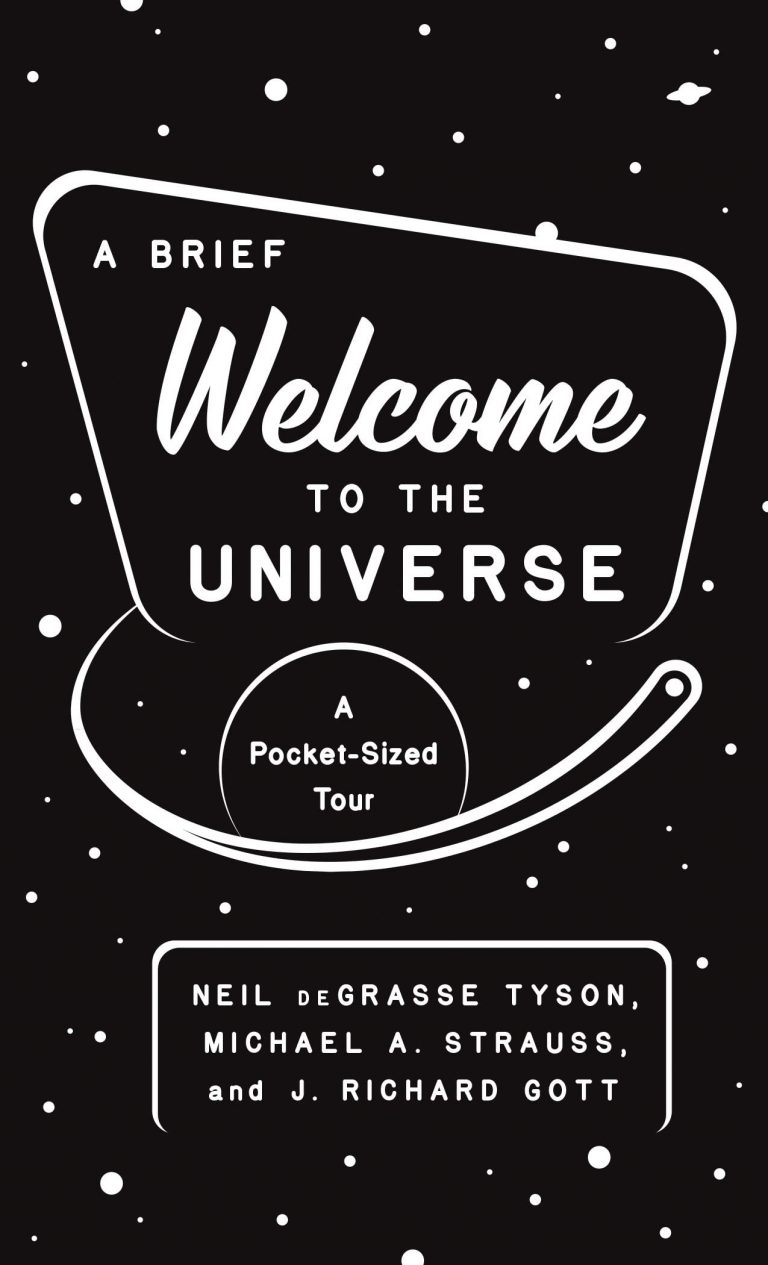
Exposing injustices in STEM
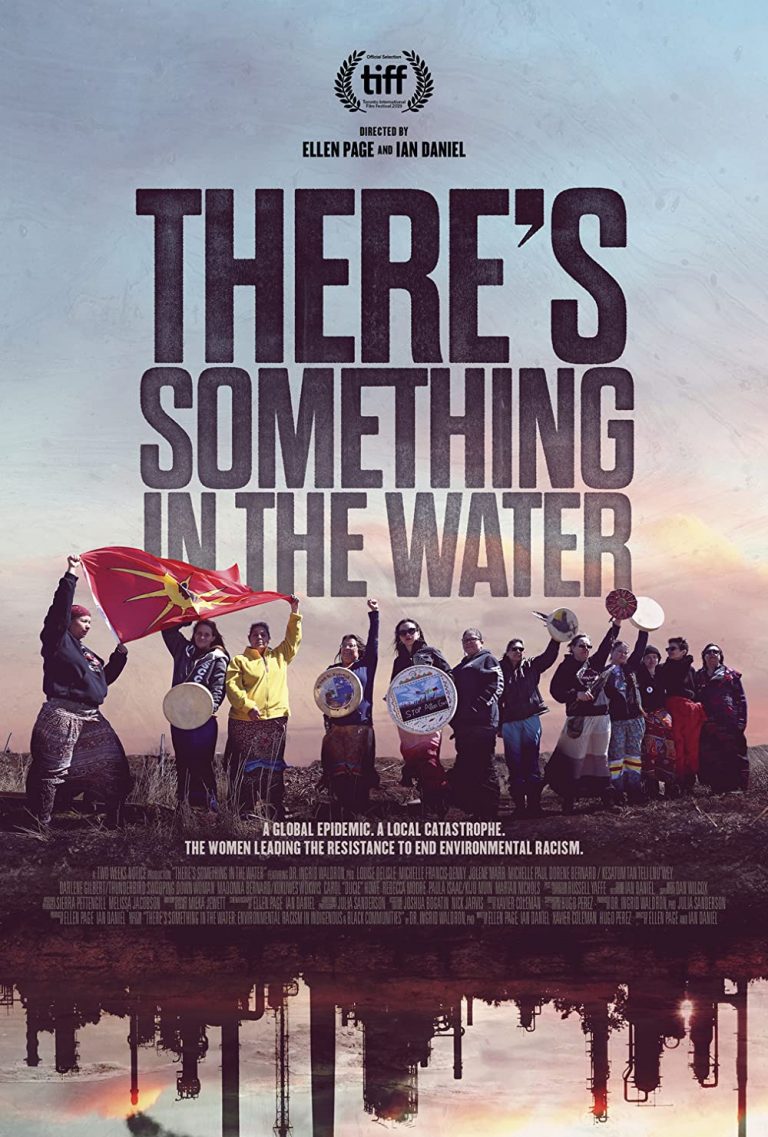
There’s Something in the Water (film)
Eliot Page, Ian Daniel, Ingrid R. Waldron, et al (directors)
“Elliot Page and Gaycation collaborator Ian Daniel shift gears with the documentary There’s Something in the Water, a disturbing and, frankly, terrifying portrait of ecological and social disasters in Page’s native Nova Scotia. Based on Ingrid Waldron’s incendiary study, the film follows Page as he travels to rural areas of the province that are plagued by toxic fallout from industrial development. As did Waldron, the filmmakers discover that these catastrophes have been precisely placed, all in remote, low income — and very often Indigenous or Black — communities. As the filmmakers observe, your postal code determines your health.”
The Immortal Life of Henrietta Lacks (film)
“Based on Rebecca Skloot’s critically acclaimed 2010 nonfiction best-seller of the same name, this HBO Films drama tells the true story of Henrietta Lacks, an African- American woman whose cells were used to create the first immortal human cell line, known as HeLa. Told primarily through the eyes of Lacks’ daughter Deborah (Oprah Winfrey) and journalist Rebecca Skloot (Rose Byrne), the film chronicles Deborah’s search to learn about the mother she never knew, and to understand how the unauthorized harvesting of Lacks’ cancerous cells in 1951 led to unprecedented medical breakthroughs, from cancer to polio to radiation to AIDS, changing countless lives and the face of medicine forever.”
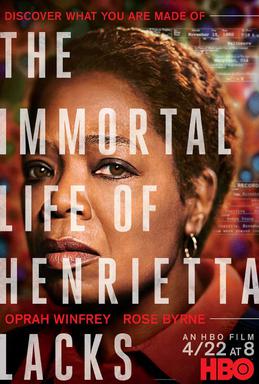
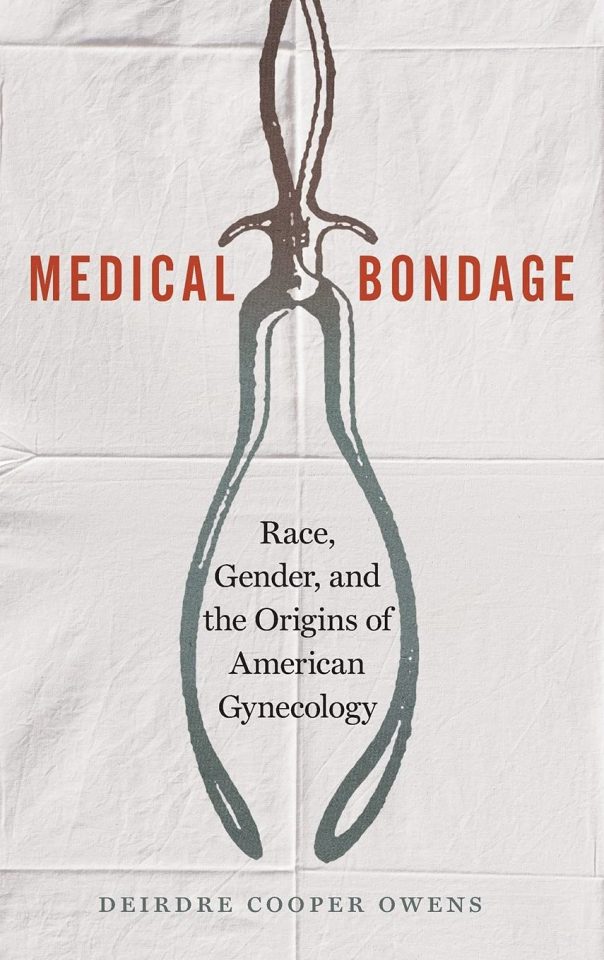
Medical Bondage: Race, Gender, and the Origins of American Gynecology
Deirdre Cooper Owens
“The accomplishments of pioneering doctors such as John Peter Mettauer, James Marion Sims, and Nathan Bozeman are well documented. It is also no secret that these nineteenth-century gynecologists performed experimental caesarean sections, ovariotomies, and obstetric fistulae repairs primarily on poor and powerless women. ‘Medical Bondage’ breaks new ground by exploring how and why physicians denied these women their full humanity yet valued them as ‘medical superbodies’ highly suited for medical experimentation. In Medical Bondage, Cooper Owens examines a wide range of scientific literature and less formal communications in which gynecologists created and disseminated medical fictions about their patients, such as their belief that [B]lack enslaved women could withstand pain better than white ‘ladies.’ Even as they were advancing medicine, these doctors were legitimizing, for decades to come, groundless theories related to whiteness and [B]lackness, men and women, and the ‘inferiority’ of other races or nationalities.”
Just Medicine: A Cure for Racial Inequality in American Health Care
Dayna Bowen Matthew
“Over 84,000 black and brown lives are needlessly lost each year due to health disparities: the unfair, unjust, and avoidable differences between the quality and quantity of health care provided to Americans who are members of racial and ethnic minorities and care provided to whites. Health disparities have remained stubbornly entrenched in the American health care system—and in Just Medicine Dayna Bowen Matthew finds that they principally arise from unconscious racial and ethnic biases held by physicians, institutional providers, and their patients. Implicit bias is the single most important determinant of health and health care disparities … In this book, she unites medical, neuroscience, psychology, and sociology research on implicit bias and health disparities with her own expertise in civil rights and constitutional law. In a time when the health of the entire nation is at risk, it is essential to confront the issues keeping the health care system from providing equal treatment to all.”
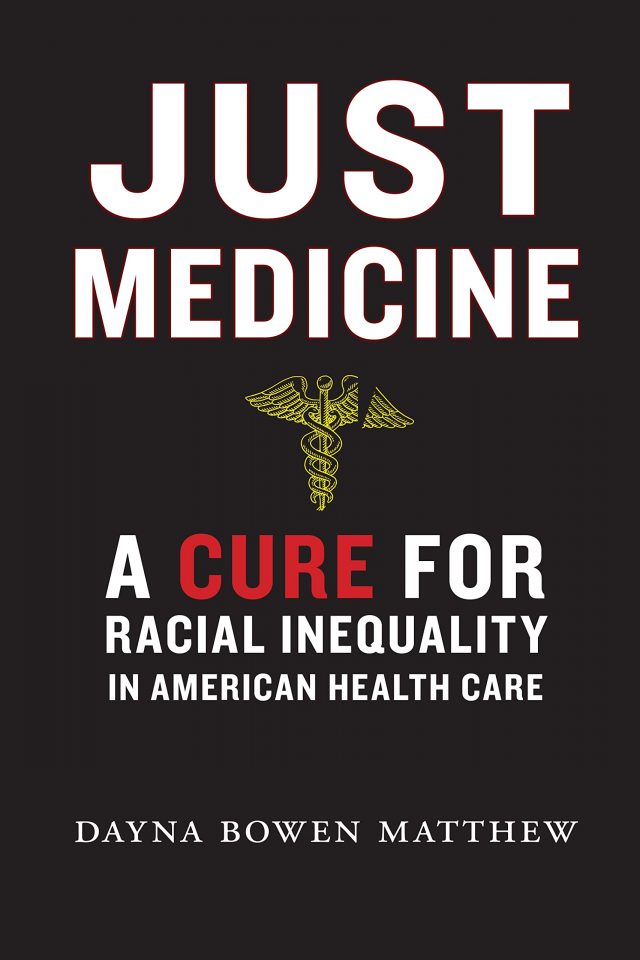
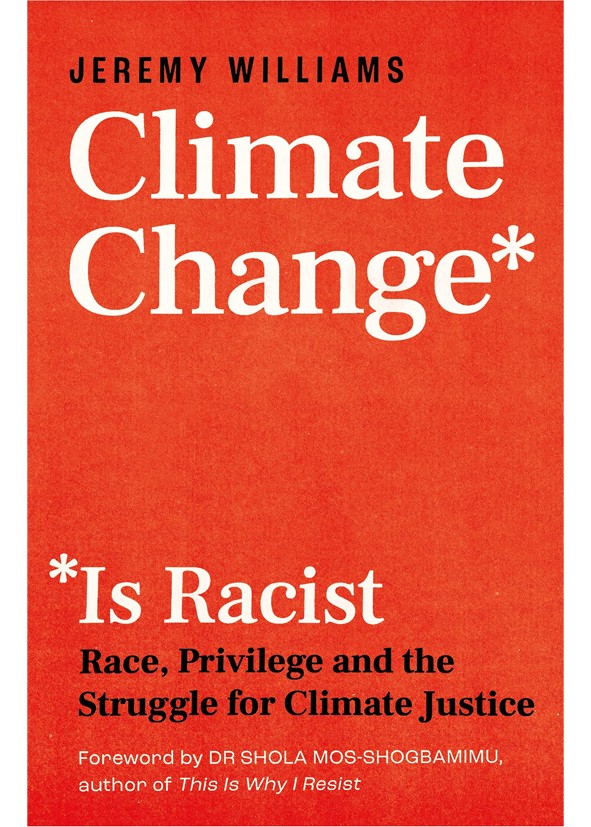
Climate Change Is Racist: Race, Privilege, and the Struggle for Climate Justice
Jeremy Williams
“When we talk about racism, we often mean personal prejudice or institutional biases. Climate change doesn’t work that way. It is structurally racist, disproportionately caused by majority White people in majority White countries, with the damage unleashed overwhelmingly on people of colour. The climate crisis reflects and reinforces racial injustices. In this eye-opening book, writer and environmental activist Jeremy Williams takes us on a short, urgent journey across the globe – from Kenya to India, the USA to Australia – to understand how White privilege and climate change overlap. We’ll look at the environmental facts, hear the experiences of the people most affected on our planet and learn from the activists leading the change. It’s time for each of us to find our place in the global struggle for justice.”
Clean and White: A History of Environmental Racism in the United States
Carl A. Zimring
“This book tells the history of the corrosive idea that whites are clean and those who are not white are dirty. From the age of Thomas Jefferson to the Memphis Public Workers strike of 1968 through the present day, ideas about race and waste have shaped where people have lived, where people have worked, and how American society’s wastes have been managed. Clean and White offers a history of environmental racism in the United States focusing on constructions of race and hygiene.”

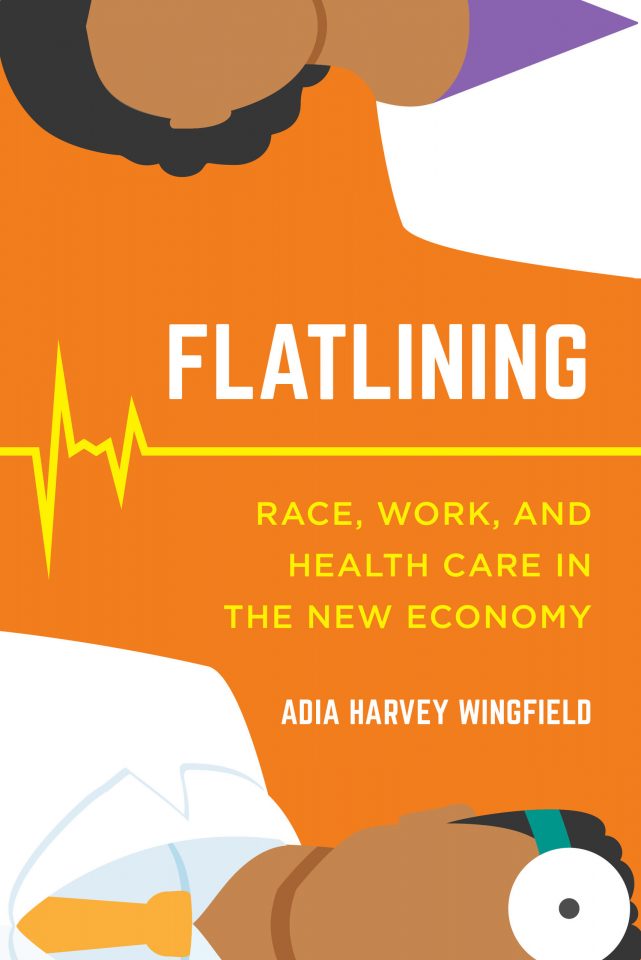
Flatlining: Race, Work, and Health Care in the New Economy
Adia Harvey Wingfield
“What happens to Black health care professionals in the new economy, where work is insecure and resources are scarce? In Flatlining, Adia Harvey Wingfield exposes how organizations serving communities of color participate in “racial outsourcing,” heavily relying on Black doctors, nurses, technicians, and physician assistants to pick up the slack and perform “equity work”–labor that varies by gender and helps organizations to be accessible to minority communities. Wingfield argues that as organizations become more focused on profit and less beholden to employees, they depend on Black health care workers to do this work but offer fewer resources and while maintaining the expectation of high levels of service to the community. At the intersection of work, race, gender, and class, Wingfield makes plain the harrowing challenges that Black employees must overcome and reveals the complicated issues of inequality in today’s workplaces and communities.”
Black and Blue: The Origins and Consequences of Medical Racism
John M. Hoberman
“Black and Blue is the first systematic description of how American doctors think about racial differences and how this kind of thinking affects the treatment of their Black patients. The standard studies of medical racism examine past medical abuses of Black people and do not address the racially motivated thinking and behaviors of physicians practicing medicine today. Black and Blue penetrates the physician’s private sphere where racial fantasies and misinformation distort diagnoses and treatments.”
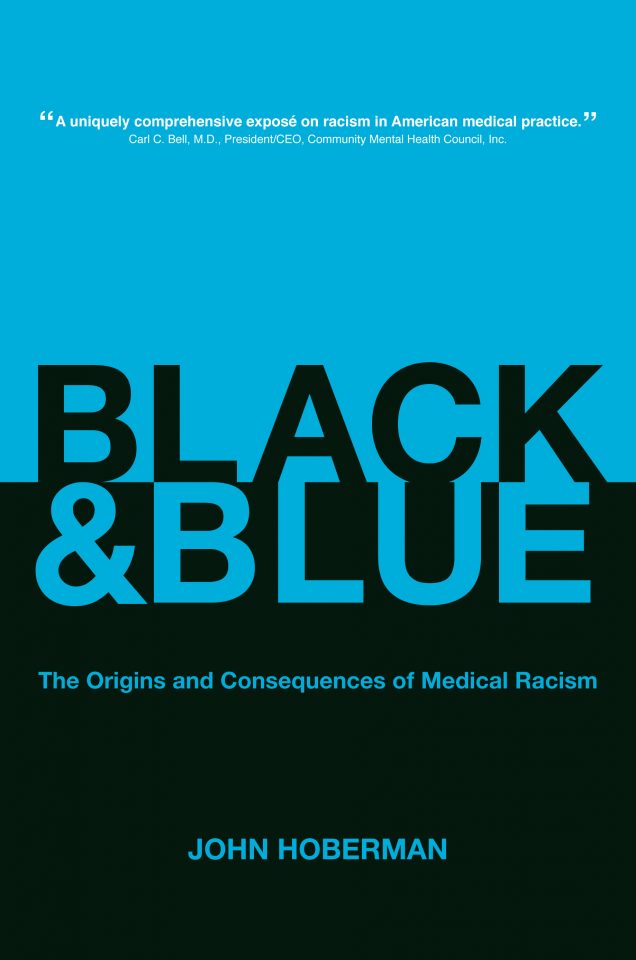
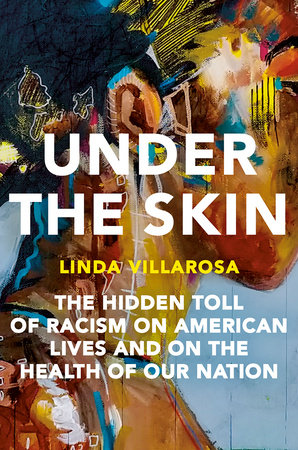
Under the Skin: The Hidden Toll of Racism on American Lives and the Health of Our Nation
Linda Villaosa
“[I]n Under the Skin, Linda Villarosa lays bare the forces in the American health-care system and in American society that cause Black people to “live sicker and die quicker” compared to their white counterparts. Today’s medical texts and instruments still carry fallacious slavery-era assumptions that Black bodies are fundamentally different from white bodies. Study after study of medical settings show worse treatment and outcomes for Black patients. Black people live in dirtier, more polluted communities due to environmental racism and neglect from all levels of government. And, most powerfully, Villarosa describes the new understanding that coping with the daily scourge of racism ages Black people prematurely. Anchored by unforgettable human stories and offering incontrovertible proof, Under the Skin is dramatic, tragic, and necessary reading.”
Subprime Health: Debt and Race in U.S. Medicine
Nadine Ehlers and Leslie R. Hinkson
“From race-based pharmaceutical prescriptions and marketing, to race-targeted medical ‘hot spotting’ and the Affordable Care Act, to stem-cell trial recruitment discourse, Subprime Health is a timely examination of race-based medicine as it intersects with the concept of debt. The contributors to this volume propose that race-based medicine is inextricable from debt in two key senses. They first demonstrate how the financial costs related to race-based medicine disproportionately burden minorities, as well as how monetary debt and race are conditioned by broader relations of power. Second, the contributors investigate how race-based medicine is related to the concept of indebtedness and is often positioned as a way to pay back the debt that the medical establishment and society at large owes for the past and present neglect and abuses of many communities of color. By approaching the subject of race-based medicine from an interdisciplinary perspective [of] critical race studies, science and technology studies, public health, sociology, geography, and law, this volume moves the discussion beyond narrow and familiar debates over racial genomics and suggests fruitful new directions for future research.”
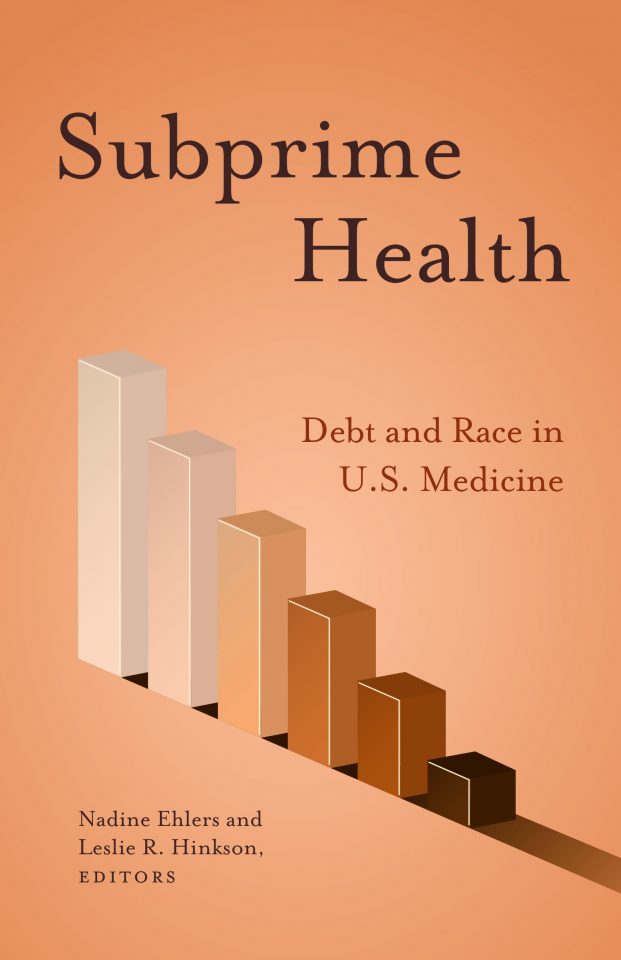
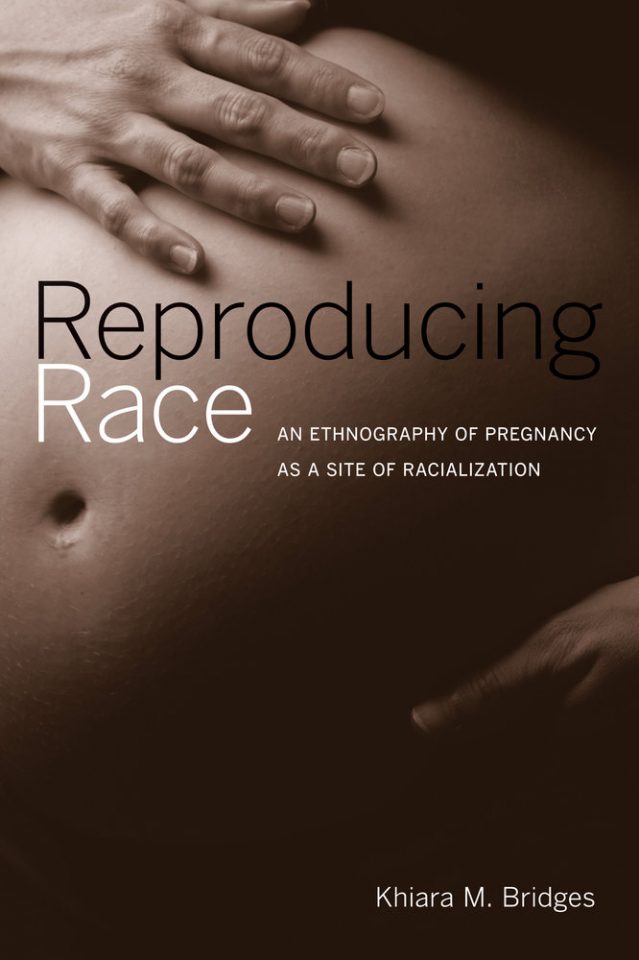
Reproducing Race: An Ethnography of Pregnancy as a Site of Racialization
Khiara M. Bridges
“Reproducing Race, an ethnography of pregnancy and birth at a large New York City public hospital, explores the role of race in the medical setting. Khiara M. Bridges investigates how race-commonly seen as biological in the medical world-is socially constructed among women dependent on the public healthcare system for prenatal care and childbirth. Bridges argues that race carries powerful material consequences for these women even when it is not explicitly named, showing how they are marginalized by the practices and assumptions of the clinic staff. Deftly weaving ethnographic evidence into broader discussions of Medicaid and racial disparities in infant and maternal mortality, Bridges shines new light on the politics of healthcare for the poor, demonstrating how the ‘medicalization’ of social problems reproduces racial stereotypes and governs the bodies of poor women of color.”
Reproductive Injustice: Racism, Pregnancy, and Premature Birth
Dana-Ain Davis
“Black women have higher rates of premature birth than other women in America. This cannot be simply explained by economic factors, with poorer women lacking resources or access to care. Even professional, middle-class black women are at a much higher risk of premature birth than low-income white women in the United States. Dána-Ain Davis looks into this phenomenon, placing racial differences in birth outcomes into a historical context, revealing that ideas about reproduction and race today have been influenced by the legacy of ideas which developed during the era of slavery.”
